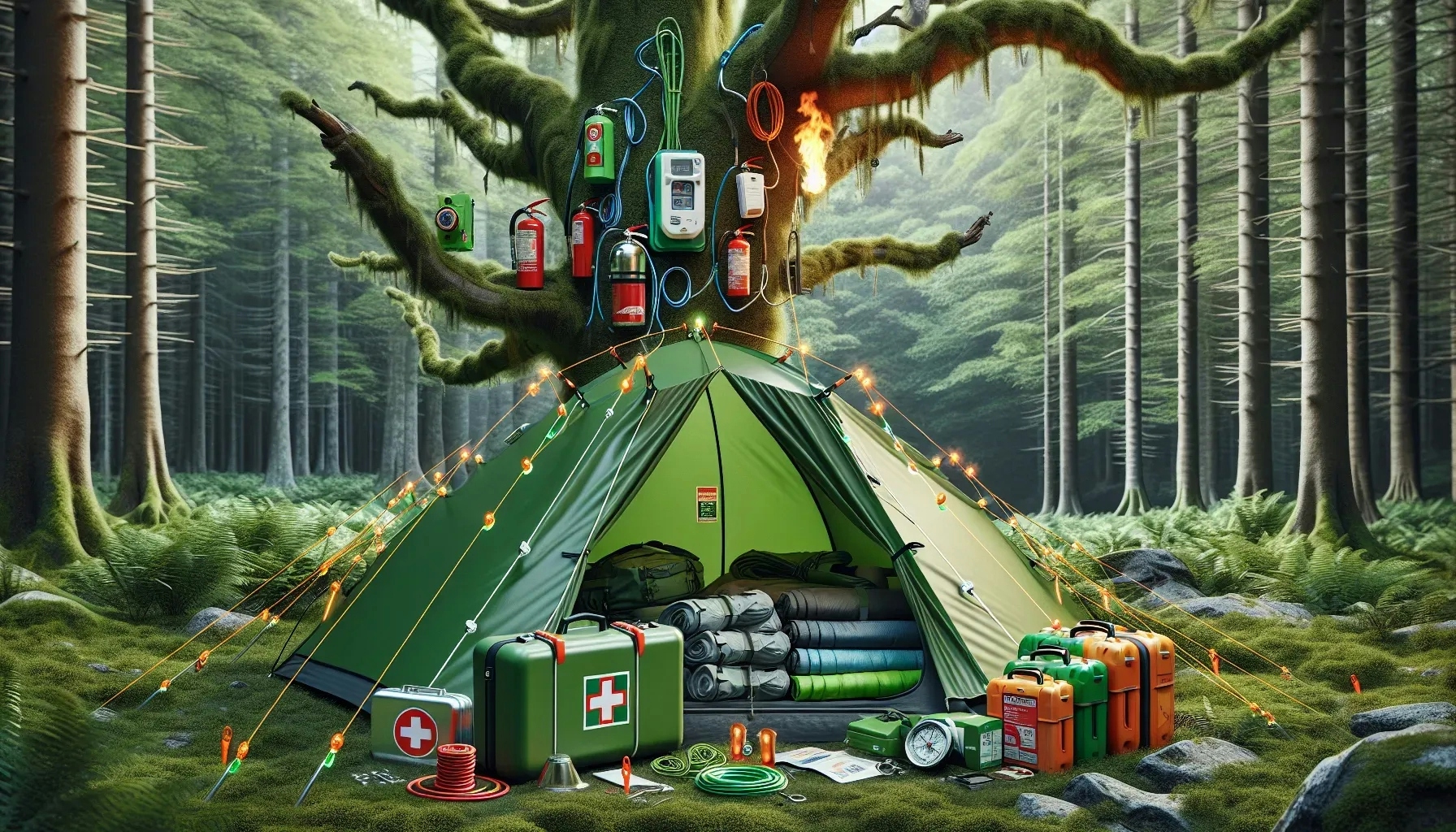Maximizing Safety While Camping
Top Camping Tips

Camping is an exciting way to connect with nature and escape the hustle and bustle of daily life. However, it also presents unique challenges and potential dangers. This blog post aims to provide you with comprehensive tips and strategies to maximize your safety while camping. From setting up a secure campsite to handling wildlife encounters, we'll cover it all. Let's embark on this journey to safer camping experiences together.
Selecting and Setting Up Your Campsite Safely
Choosing the right campsite is the first step towards a safe camping experience. You want a location that's not only scenic but also safe. Avoid areas near water bodies as they can attract wildlife and are prone to flooding. Also, steer clear of dead trees or loose rocks that could potentially fall.
Once you've selected your campsite, setting it up safely is crucial. Keep your sleeping area at least 100 feet away from your cooking area. This distance reduces the chances of your sleeping area attracting animals with the smell of food.
Ensure your tent is sturdy and secure to protect you from harsh weather conditions. Check for any signs of animal activity around your campsite. If you spot any, it's best to move to a different location.
Food Storage and Handling
Food attracts wildlife, so proper storage and handling are essential. Use bear-resistant containers to store your food and toiletries. These containers are designed to withstand attempts by bears and other wildlife to access your food.
Never leave your food unattended. If you're going away from your campsite, ensure all food items are securely stored. Dispose of your trash properly in designated areas or carry it with you until you find one.
Cooking also requires care. Avoid strong-smelling foods that can attract animals from a distance. Clean up immediately after meals to eliminate lingering food smells.
Fire Safety Measures
Campfires are a camping staple, but they also pose a significant risk if not handled correctly. Always check if the campground allows fires. If they do, use designated fire rings or pits.
Never leave a fire unattended. Keep a bucket of water or a shovel nearby to extinguish the fire quickly in case it gets out of control. When you're done, ensure the fire is completely out before you retire for the night or leave the campsite.
Navigating Safely
Getting lost is a common danger when camping. Always carry a map and compass with you. Even if you're familiar with the area, it's easy to get disoriented in the wilderness.
Inform someone of your camping plans. If anything goes wrong, they'll know where to look for you. Stick to marked trails to avoid getting lost. If you're venturing off-trail, make sure you're skilled in navigation.
Handling Wildlife Encounters
Encountering wildlife is part of the camping experience. However, it's important to remember that you're a guest in their home. Keep a safe distance from all wildlife. Never feed animals as it encourages them to approach humans, which can be dangerous.
If you encounter a bear or other large animal, avoid direct eye contact, which they may perceive as a threat. Speak calmly and firmly while backing away slowly. If the animal approaches you, make yourself appear larger and make loud noises to scare it away.
First Aid and Emergency Preparedness
Accidents can happen, so it's essential to be prepared. Carry a first aid kit with you and know how to use it. Learn basic first aid skills before your trip, including how to treat cuts, burns, and fractures.
In case of an emergency, have a plan. Know the location of the nearest hospital and have emergency numbers saved in your phone. Carry a whistle or other loud noise-making device to signal for help if needed.
Wrapping Up: A Safer Camping Experience
Camping is a thrilling adventure, but it's essential to prioritize safety. By selecting a safe campsite, handling food correctly, practicing fire safety, navigating wisely, respecting wildlife, and preparing for emergencies, you can significantly enhance your safety. Remember, a safe camping trip is a successful camping trip. Happy camping!